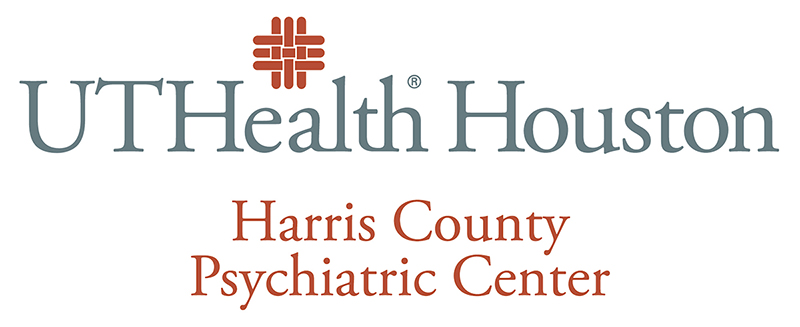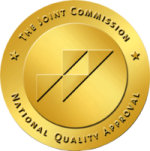UTHealth Houston Harris County Psychiatric Center
Mental Illness
Types of Mental illness • Causes • Signs & Symptoms • Myths • Living with Mental Illnesses • How Family & Friends Can Help • Treatments
Mental illnesses are some of the most misunderstood afflictions in today's society. Too many people think of mental illness as a "weakness." Nothing could be further from the truth. These are true illnesses and brain diseases. Relationships, work, school and home life can suffer as a result of mental illnesses. Thousands of people live with mental illnesses every day, and some are not even aware, themselves, of the problem. However, unlike the images we often see in books, on television and at the movies, most people with mental illnesses can lead productive, fulfilling lives with proper treatment and support.
Recognizing and understanding mental illnesses is the first step.
Mood Disorders
Major depression and manic depressive disorder (also called bipolar disorder) are disorders that cause change in a person's mood.
Major depression causes people to feel hopeless, exhausted and useless. More than changes in mood, major depression can cause problems with sleep, appetite, self-esteem, daily activities and physical health.
Manic depressive disorder (bipolar disorder) causes swings from deep depression to abnormal elation or "highs." Hyperactivity, scattered ideas, easy distraction, irritability and recklessness also occur in bipolar disorder during manic episodes.
Anxiety Disorders
Anxiety disorders come in many forms and may be experienced differently in each person. However, their common factor is a feeling of constant terror, dread or worry beyond one's normal reactions to danger.
Phobias are irrational fears of objects or situations that cannot be overcome with reasonable explanations or actions. In many instances the phobias are so extreme that they cause major disruption to the victim's life.
Specific phobias are typically fears of particular objects or situations. The most common are fears of animals, fears of heights, fears of enclosed spaces and fears of flying.
Social phobias cause people to dread being watched or humiliated while doing something of a social nature, such as eating a meal or giving a speech, due to expectation of negative evaluation. Some people with social phobias fear and avoid any contact with others.
People with agoraphobia often have panic attacks and fear being in situations in which they cannot get help or escape. Often, this paralyzing fear causes its sufferers to remain isolated in their homes.
Panic disorder involves sudden, unexpected attacks of intense terror. Its symptoms include shortness of breath, heart palpitations, chest pain, choking, trembling and faintness. Panic attacks can occur at any time, distinguishing them from the natural reaction to real danger.
Generalized anxiety disorder causes more constant and unrealistic worry about everything. Worry about things such as family's physical safety or financial security may continue, in spite of attempts to convince the sufferer that all is well. People with generalized anxiety disorder feel anxious, sleepless, irritable and physically stressed, more often than not, to a level that interferes with daily functioning.
Obsessive-compulsive disorder (OCD)
OCD causes its sufferers to act out repetitive, ritualistic behaviors based on persistent and involuntary thoughts. Continual hand washing, stove or lock checking, and counting to a certain number are examples of compulsions. Unrealistic fears of hurting one's child or swearing in public are examples of obsessions. Often, people with this disorder are aware that their thoughts and behaviors are irrational, but feel powerless to stop them.
Schizophrenia
Schizophrenia defines a group of disorders that cause distorted thought and perception. Thoughts seem scrambled or suddenly jump from one subject to an unrelated subject. Perception can be distorted beyond reality, causing sufferers to hear or see things that are not there. People with schizophrenia commonly feel heightened self-awareness or paranoia. Often they suffer low self-esteem and even withdraw into seclusion.
Schizophrenia is one of the most debilitating of all mental illnesses. It afflicts people of all ages, race and gender, and it affects each individual in different ways and degrees.
Mental illnesses are caused by disorders of brain chemistry and function that affect how a person thinks, perceives and gets along in the world. Anyone, regardless of age, race or gender, can develop a mental illness. The risk to develop a mental illness can be inherited, just as a risk for diabetes or heart disease is passed down in families. However, other factors such as problems in development prior to birth, imbalances in brain chemistry, traumatic personal experiences and other physical problems have been presumed to be contributors as well.
People who suffer from mental illnesses may display one or more of the following behaviors:
- Talk of suicide or threats to others
- Prolonged feelings of intense tension or anxiety
- Sudden changes in eating and/or sleeping habits
- Atypical thoughts and speech
- Sudden changes in mood and behavior
- Withdrawal from friends and family
- Loss of interest in favorite activities
- Physical symptoms, including pains of various sorts
"People with mental illnesses can just pull themselves
together."
Mental illnesses are not spontaneous lapses in judgment or emotional
weakness. They are ultimately a result of disorders of brain
chemistry and function that produce symptoms in thinking, mood
and behavior. Though the symptoms can be treated effectively,
expectations that a victim will "snap out of it" are
not helpful and may be harmful in the long run.
"People with mental illnesses are violent."
Most people with mental illnesses are no more prone to violent
behavior than anyone else. However, there is a small group
of people who experience problems with impulse control, aggression
and paranoia, making them more likely to strike out violently
without adequate treatment.
"Mental illness means being locked up for life."
Absolutely not. Most people with mental illnesses, provided they
are willing, can receive effective care without entering a
hospital. For those who do need to go to the hospital, the
stay usually lasts only a few weeks and does not require confinement
or isolation. Treatment areas for psychiatric illnesses are
often locked for the protection of patients who may not be
thinking clearly about the safety of themselves or others.
Various therapies and activities may take place outside the
treatment area. Also, there may be opportunities to take short
trips outside the hospital and enjoy outdoor activities. After
the hospital stay, many people can return to work, home and
activities that were enjoyed before.
"Drugs don't cause mental illness."
Heavy use of crack cocaine, marijuana, heroin and other drugs
is thought to trigger mental illness in some people. Also,
alcohol and other drug use makes matters worse for people with
mental illness. Organic disorders that involve damage to the
structure of the brain can be caused by abusing inhalants,
sniffing paints, glues and other toxic fumes. However, it is
important to remember the difference between medications for
treating mental illness and "drugs" that are abused.
"Your boss must know about your illness."
Mental health treatment providers cannot notify employers about
employees illnesses without the patients permission. However,
because an employer needs to get the job done, realistic planning
followed by a discussion with the boss can ease work stress.
The Americans with Disabilities Act was developed to protect people from being fired on the basis of disability. This protection can extend to people with mental illnesses. The employer will still require that the job be done, but should make reasonable adjustments to allow the disabled person to perform.
Mental illness is a common affliction. There are approximately 400,000 people who suffer from mental illness living in Harris County. One in five Houston-area children has some form of illness. Nationally, three to five percent of all children under 18 have a severe mental disorder. It is estimated that more than 15 million Americans suffer from depression. Anxiety afflicts about 30 million people, and millions more suffer from obsessive-compulsive disorder, panic attacks and phobias.
Some victims aren't even aware of their illnesses, which are readily noticed by others. Many others turn to personal and social diversions as a means of dealing with their problems. Those who do seek treatment are finding increasingly better results, allowing as many as 80 percent of patients to return to normal, productive lives. You are not alone.
When mental illnesses strike, they reach far beyond their victims. Family members, friends, co-workers and many others suffer as well. But family and friends can potentially be the best help for victims.
How Family and Friends Can Help
One of the greatest helps to a friend or loved one with a mental
illness is emotional support. Family and friends should sincerely
listen to the
person with the disorder, offering reassurance. They can help
the person become involved in his or her own treatment. They
can be the rational, stable support in the difficult and frustrating
times.
Family and friends should plan ahead and be prepared for possible crises. Keep names and doses of medications, phone numbers, and other important information and materials readily available.
Dealing with a relative or friend with a mental disorder can be tremendously stressful. Family and friends can find emotional support, understanding and hope from outreach, education and advocacy groups. Whether you are the victim, a family member or a friend, everyone who is affected by mental illness should seek help.
Mental health professionals offer a wide range of effective therapies and treatments, drawing on significant advances in procedures and technologies. Most serious mental illnesses require a combination of medication and supportive psychological therapies either in the hospital or on an outpatient basis.
Medication is commonly prescribed for mental illness and has proved itself to be an increasingly effective tool. This type of treatment requires careful supervision by a physician and is targeted at the chemical imbalances associated with mental illness.
Psychotherapy addresses the emotional response to mental illness. Coping with life's stressful events is especially difficult for people with mental illness. Psychotherapists help patients understand their emotions and deal with their problems in a more confident, healthy way. Group psychotherapy, led by a licensed psychotherapist, allows patients to draw emotional support from others with similar problems.
Supportive therapies include a number of related activities designed to enhance treatment of mental illness. Occupational therapy helps patients return to daily living skills and routines that may have been impaired by mental illness. Activity therapy focuses on problems through recreational and group activities.
The most successful treatments of medication, psychotherapy and supportive therapies are tailored to the individual patient's needs under the close supervision of a psychiatrist, a physician who specializes in mental illnesses.


